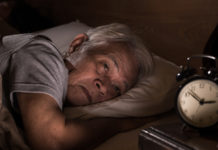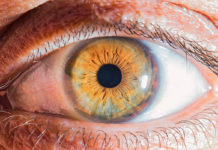Humans’ circadian clocks become skewed when they are exposed to electric lights but revert to a schedule more in tune with the sun when they go camping.
 A weeklong wilderness escape from the electrical lights that illuminate most of our daily lives is enough to reset our internal circadian clocks to synchronize with sunrise and sunset, according to new research from the University of Colorado Boulder.
A weeklong wilderness escape from the electrical lights that illuminate most of our daily lives is enough to reset our internal circadian clocks to synchronize with sunrise and sunset, according to new research from the University of Colorado Boulder.
Eight hardy study participants spent a week camping in Colorado’s Eagles Nest Wilderness with just the blaze of the sun and the glow of a campfire for light. At the end of the trip researchers found that the campers’ biological nighttimes shifted to start when the sun went down and end when the sun came back up.
The shift happened for all the participants, even though some are night owls in their normal lives and others are early birds.
“What’s remarkable is how, when we’re exposed to natural sunlight, our clocks perfectly become in synch in less than a week to the solar day,” said CU-Boulder integrative physiology Professor Kenneth Wright, who led the study.
Electrical lighting, widely available beginning in the 1930s, has affected our internal circadian clocks, which tell our bodies when to prepare for sleep and when to prepare for wakefulness. The ability to flip a switch and flood a room with light allows humans to be exposed to light much later into the night than is possible naturally.
Even when people are exposed to electrical lights during daylight hours, the intensity of indoor lighting is much lower than sunlight and the color of electrical light also differs from natural light, which changes shade throughout the day.
To quantify the effects of electrical lighting, a research team led by Wright, and including undergraduate and doctoral students, monitored the study participants for one week as they went about their normal daily lives. The participants wore wrist monitors that recorded the intensity of light they were exposed to, the timing of that light, and their activity, allowing the researchers to infer when they were sleeping.
At the end of the week, the researchers also recorded the timing of participants’ circadian clocks in the laboratory by measuring the presence of the hormone melatonin. The release of melatonin is one of the ways our bodies signal the onset of our biological nighttime. Melatonin levels decrease again at the start of our biological daytime.
The same metrics were recorded during and after a second week when the participants—six men and two women with a mean age of 30—went camping in the Rocky Mountains. During the week, flashlights and personal electronic devices were not allowed.
On average, participants’ biological nighttimes started about two hours later when they were exposed to electrical lights than after a week of camping. During the week when participants went about their normal lives, they also woke up before their biological night ended.
After the camping trip—when study subjects were exposed to four times the intensity of light compared with their normal lives—participants’ biological nighttimes began near sunset and ended at sunrise. They also woke up just after their biological night had ended. Becoming in synch with sunset and sunrise happened for all individuals even though the measurements from the previous week indicated that some people were prone to staying up late and others to getting up earlier.
“When people are living in the modern world—living in these constructed environments—we have the opportunity to have a lot of differences among individuals,” said Wright, who also is the director of CU-Boulder’s Sleep and Chronobiology Laboratory. “Some people are morning types and others like to stay up later. What we found is that natural light-dark cycles provide a strong signal that reduces the differences that we see among people—night owls and early birds—dramatically.”
Source: http://www.colorado.edu/news/features/set-sun-escape-electrical-lights-synchs-our-circadian-clocks-solar-day














